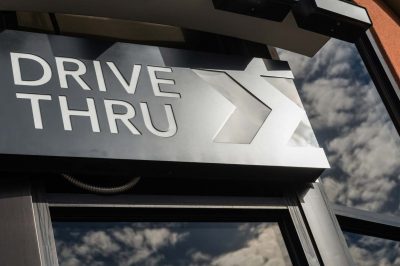Answer
In the Name of Allah, Most Gracious, Most Merciful.
All praise and thanks are due to Allah, and peace and blessings be upon His Messenger.
In this fatwa:
1- In light of recent developments of Coronavirus (COVID-19) and in the states and municipalities where residents have been advised to avoid crowds and/or not to leave home except in the case of necessity, the Eid Al-Adha prayer can be performed with the minimum requirements. This would include an imam as well as two or three adult males, all the while maintaining physical distancing and wearing face masks.
2- There is no harm in performing the Eid prayer at home individually, or together with the members of one’s family, if someone is unable to perform it in congregation due to a hindrance.
3- It is not permissible to pray in one’s home while being led by an imam who is elsewhere, for example via modern means of communication and broadcast such as internet, television, etc.
4- As for the states and municipalities where the virus is under control and it is permissible to gather therein, then people may congregate while following the guidelines set by health officials and after having consulted the experts, so as to ensure the safety of those coming to pray as well as the community at large, all the while establishing the ritual of Eid and preserving this Sunnah.
Answering your question, the Resident Fatwa Committee (RFC) of AMJA (Assembly of Muslim Jurists of America) states:
States and cities all over North America are dealing with the spread of this disease amongst their residents on different levels. Therefore, these factors must be taken into consideration in the application of the following rulings.
Eid al-Adha Prayer in Cities Where COVID-19 Cases is in the Rise
In those states and municipalities where residents have been ordered or advised to avoid crowds and/or not to leave home except in the case of necessity, the Eid Al-Adha prayer can be performed with the minimum requirements. This would include an imam as well as two or three adult males, all the while maintaining physical distancing and wearing face masks. This is because Eid Al-Adha is one of the manifest Islamic rituals, and scholars have varying opinions on whether or not its performance is a communal obligation, an individual obligation, or a confirmed Sunnah.
Furthermore, because of the principle which states; “What is doable (as far as obligatory actions) does not stop being an obligation due to the presence of what is not doable”; the Eid Al-Adha prayer should be performed to the best of our ability, even if it is within the narrow and limited scope that we have described. It would not be befitting for us to be negligent in this matter (i.e., not performing the Eid Al-Adha prayer at all).
And similar to how Jumuah prayer is to be established within the limits of the maximum permissible number of congregants in one building, even if that means limiting the congregation to the administrative members of the mosque, the same can be said about the Eid prayer.
Eid Al-Adha Prayer at Home
When it comes to the performance of the Eid prayer in the home, for the one who was not able to pray it in congregation, the matter is not so restricted.
Whereas the khutbah (sermon) is a condition of validity for Jumuah prayer (even though the one who catches one rakah [unit] of the prayer is considered to have caught the prayer), the khutbah is voluntary in the two Eid prayers.
Abdullah ibn as-Sa’ib who said, “I attended the Eid prayer with the Messenger of Allah (peace be upon him). When he finished the prayer, he said: ‘We shall deliver the sermon; he who likes to sit and listen may do so, and he who wishes to leave may do so’.” Therefore, the khutbah is not a condition of validity for the Eid prayer, nor is listening to it.
And though the Jumuah prayer, by default, is to be performed inside the mosque, the Eid prayer on the other hand should be performed outdoors rather than inside the mosque.
It is for this reason that the majority of scholars from the Maliki, Shcafi`i, and Hanbali schools permit the performance of Eid prayer in the home for the one who was not able to attend it in congregation, though the Hanafi scholars disagree.
The evidence on the side of the majority is what has been narrated to us about Anas (may Allah be pleased with him) who, whenever he missed Eid prayer with the imam, would gather his family members and servants. He would then have Abdullah ibn Abi Utbah lead them in two units of prayer while performing the customary takbirat.
📚 Read Also: Can We Skip Friday Prayer When It Coincides with Eid?
Based on this narration, there is no harm in performing the Eid prayer at home individually, or together with the members of one’s family, if someone is unable to perform it in congregation due to a hindrance.
In addition, we have the choice in performing this prayer in congregation or individually. And whether we choose to pray it in its normal form (reciting out loud with the additional takbirat), or as two units with a silent recitation and without the additional takbirat (similar to the two units of Duha prayer), or four units with a silent recitation (similar to Zhuhr prayer), then that is all permissible and correct, with each of the aforementioned forms being traceable to a narration attributed to our righteous predecessors (salaf).
Praying in one’s home while being led by an imam who is elsewhere
It is not permissible to pray in one’s home while being led by an imam who is elsewhere, for example via modern means of communication and broadcast such as internet, television, etc.
However, there is no harm in listening to an Eid khutbah being broadcast live (even if it is prerecorded) from the mosque after having completed the Eid prayer at home, and the speech in this case would be considered a general admonishment. There is also no harm if it is followed up by a broadcasted supplication (duaa) afterwards.
And for the one who will be praying at home, it is a Sunnah to break the fast after the Eid prayer and not beforehand (in contrast to Eid al-Fitr). It is also recommended to perform the other Sunnahs of Eid, such as performing a ritual shower (ghusl), applying good scents, dressing nicely, etc.
Eid al-Adha Prayer in Cities Where COVID-19 Cases is under Control
As for the states and municipalities where the virus is under control and it is permissible to gather therein, then people may congregate while following the guidelines set by health officials and after having consulted the experts, so as to ensure the safety of those coming to pray as well as the community at large, all the while establishing the ritual of Eid and preserving this Sunnah.
The congregants, and all those attending, are to avoid shaking hands with one another and/or hugging, in order to avoid the possible spread of the virus – as we are still dealing with this pandemic.
It would be permissible for congregants to perform the Eid prayer while standing next to their own vehicles in a parking lot while maintaining a safe distance from others, if this is the only way the community would be permitted to gather and perform the Eid prayer.
We do not, however, deem it permissible to pray sitting inside one’s vehicle, because that would change the required form in which the prayer is to be performed and because doing so can be used as a pretext for permitting, by default, this form of prayer in the future even once the dire need caused by the pandemic is gone, and even with the availability of other options such as praying in small groups, praying at home, or to the side of one’s vehicle, as we have just mentioned.
Almighty Allah knows best.
Source: https://www.amjaonline.org/



